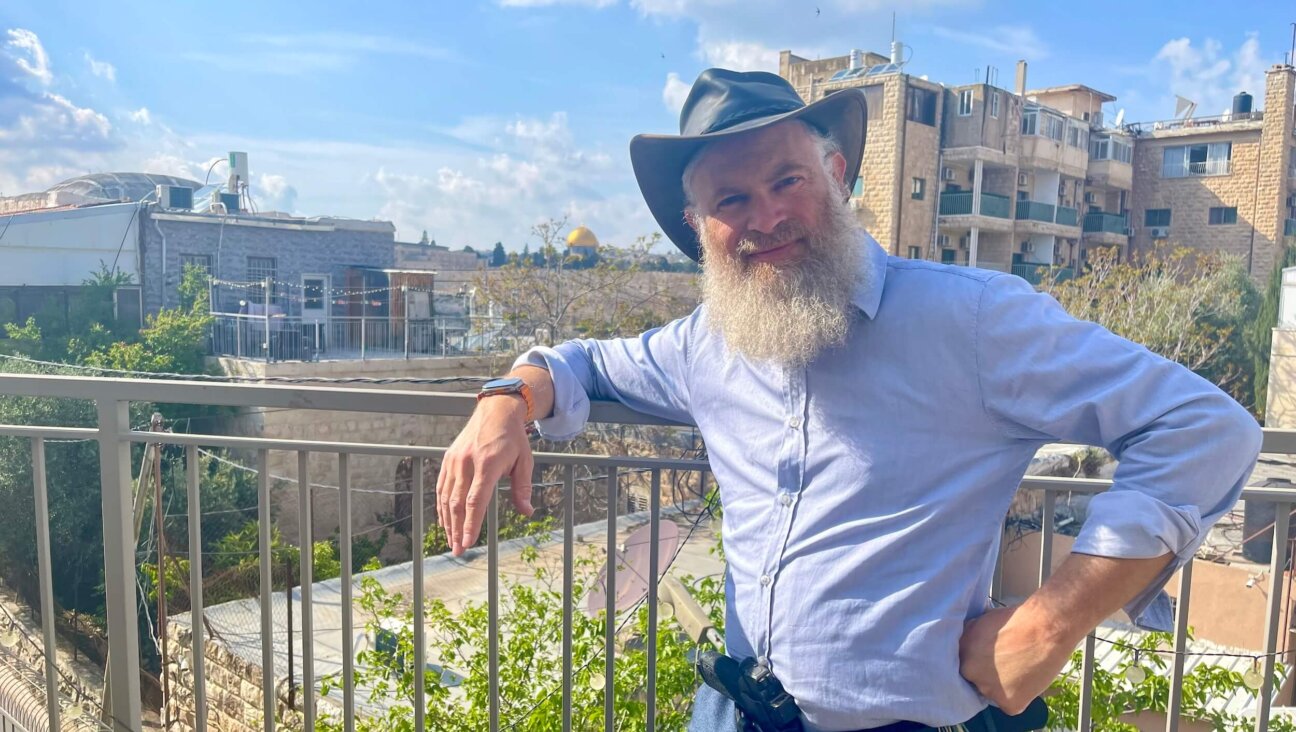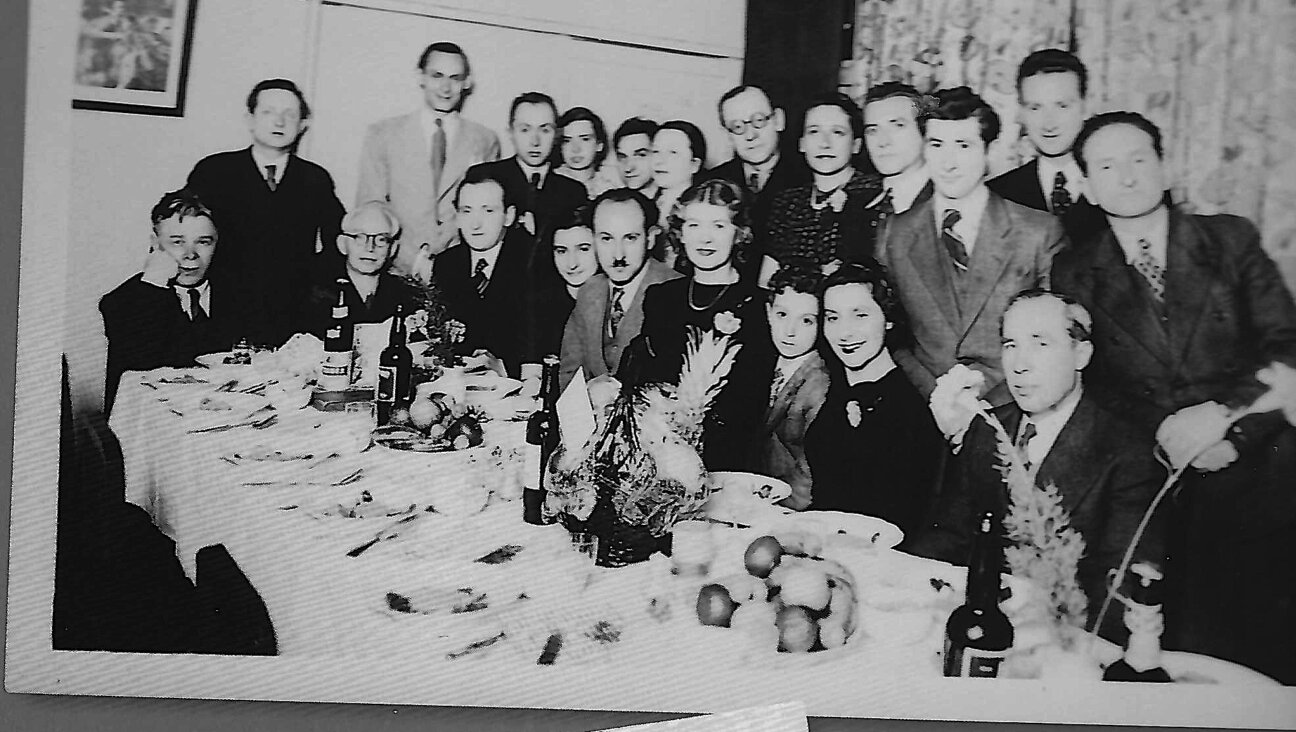Synagogues Step Up Community Organizing Efforts
Three state assembly members and a lone county supervisor in Los Gatos, Calif., were no match this week for 500 Jews demanding more money for health care.
“We meet tonight to ensure health care coverage for all county residents,” said Rabbi Joel Fleekop of Congregation Shir Hadash, a local congregation and host of the February 12 event in the Silicon Valley town.
Invoking Judaism’s exhortation “to care for the widow and the orphan,” Fleekop and a dozen other speakers presented universal health care as a God-given right. If funding is not forthcoming, they warned the four elected officials, more than 300,000 children in California will be uninsured by 2012.
“As people of faith, we won’t stand for it,” one speaker declared.
It was hardly a fair fight. But that’s how it usually goes at such events, whispered Simon Greer, president of Jewish Funds for Justice, which had bused in more than 200 participants for the meeting from its national conference, “Holy Congregations, Just Communities,” in nearby Santa Clara.
It’s not surprising to see Jews heavily represented among activists for health care, or for any other social, political or environmental cause. But these people Monday night were doing it as congregations, following a model of congregation-based community organizing put forward by Jewish Funds for Justice five years ago.
By joining with like-minded churches and civic groups in large, regional interfaith networks, Greer said, these synagogues are multiplying their strength and enhancing their effectiveness.
Participants from around the country said they are helping to transform their congregations into more caring, connected communities.
On the social action front, they are moving beyond once-a-year “mitzvah days” to become effective agents for social change in housing, education, crime prevention and health care. They are helping to push through laws and policies at local and state levels that they never could have achieved alone.
“Hundreds of thousands of people have access to health care because of this work,” Greer said.
The model is proving to be popular. In 2002, when the Jewish Funds initiative began, 20 synagogues signed on. Today that number has climbed to 70. Staffers hope it will move past 100 by the end of the year.
Nearly 300 Jewish clergy, rabbinical students and lay leaders, representing 63 of those 70 congregations, spent three days this week at the group’s second national gathering devoted to the issue.
Forty-four rabbinical students, from Reform to Orthodox, have taken the group’s semester-long course in leadership development and community organizing. It is required of all second-year students at the Modern Orthodox seminary Yeshivat Chovevei Torah in New York.
Synagogues engaged in the work are reporting success.
A congregation near Chicago, working in concert with other faith-based groups, shut down one of its neighborhood’s main suppliers of guns. Another congregation, in Columbus, Ohio, secured $1 million to expand community health care centers to serve an additional 3,500 people. A third, in Northern California, convinced county officials to set aside $18 million for affordable housing. And a fourth, in a Maryland town, doubled the number of taxis so that local seniors could get around.
There are bigger victories, as well. Rabbi Jonah Pesner spearheaded a successful organizing initiative at Temple Israel in Boston before being hired by the Reform movement to head its national “Just Congregations” project. He said that the statewide health care reform in Massachusetts passed last March because of the efforts of the 55 churches, synagogues and civic groups in the Greater Boston Interfaith Organization.
Beyond the tangible victories, those involved in this work say it has transformed their synagogues into communities where the people know and care about each other. “My relationships with people are deeper, stronger,” said Rick Zinman of Temple Beth El in Aptos, Calif.
Zinman said that after 18 years as a synagogue member, he only began to consider the synagogue his home when he became involved in its community-organizing project two years ago.
The process itself is important, participants say. Instead of having the rabbi or social action committee decide which projects to work on, congregants sit down with each other to talk about who they are, what they care about and why. Each congregation sifts through its members’ stories to hone in on the issues on which they want to focus.
With this model, Greer said, “not only do you have a greater effect on the issues, you have a synagogue where people share their concerns and hopes. It’s a transformative process that changes people’s lives.”
Congregation Kehilat Shalom in Montgomery Village, Md., decided to work for affordable housing because many of its members’ children couldn’t afford to buy homes in the area.
“My empty nesters said, ‘Our kids are moving out; we want to be near our grandchildren’,” Rabbi Mark Raphael said.
Kehilat Shalom joined Action in Montgomery, a group of 31 local churches committed to social action, and together they got the county to earmark $140 million for affordable housing on public land.
The congregation still collects clothes for the homeless and holds its annual mitzvah day.
“We should never stop doing direct service,” Raphael said. “It saves lives. But the underlying causes of health care, education, housing problems, are deeply rooted and need fundamental solutions. By pooling our efforts with other congregations, we can make a difference.”
The process is also time consuming. Congregation Sha’ar Zahav in San Francisco held 150 one-to-one meetings over the course of a year before joining the San Francisco Organizing Project, an interfaith network, to work for health care reform.
“There was a lot of hesitancy in the synagogue,” congregant Susan Lubeck said. “The idea of being the only Jews in a Christian context was unnerving.”
It turns out that the churches had been seeking a way to draw synagogues into their social justice work, said Erika Katske, associate director of the San Francisco Organizing Project, just at the time that synagogues nationwide were becoming more interested.
Last June, Sha’ar Zahav hosted its first meeting with city officials to push for health care reform. Rabbi Camille Angel watched as her congregants stood up and, one by one, told their stories: One had AIDS; another couldn’t afford medical insurance.
The politicos voted unanimously, and San Francisco became one of the first cities to pledge universal health care coverage.
That was terrific, Angel said, but what the process did for her congregation was just as important.
“I saw my congregants become leaders,” the rabbi said. “It was one of the most religious moments I’d ever seen in my sanctuary.”

I hope you appreciated this article. Before you go, I’d like to ask you to please support the Forward’s award-winning journalism this Passover.
In this age of misinformation, our work is needed like never before. We report on the news that matters most to American Jews, driven by truth, not ideology.
At a time when newsrooms are closing or cutting back, the Forward has removed its paywall. That means for the first time in our 126-year history, Forward journalism is free to everyone, everywhere. With an ongoing war, rising antisemitism, and a flood of disinformation that may affect the upcoming election, we believe that free and open access to Jewish journalism is imperative.
Readers like you make it all possible. Right now, we’re in the middle of our Passover Pledge Drive and we need 500 people to step up and make a gift to sustain our trustworthy, independent journalism.
Make a gift of any size and become a Forward member today. You’ll support our mission to tell the American Jewish story fully and fairly.
— Rachel Fishman Feddersen, Publisher and CEO
Join our mission to tell the Jewish story fully and fairly.
Our Goal: 500 gifts during our Passover Pledge Drive!























